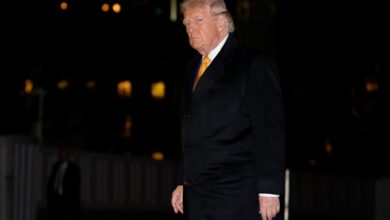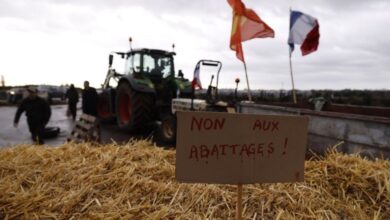Latino Communities say “no” to European Mining Extractivism in the Region
A caravan, led by religious groups, arrived in the Old Continent to talk about the mining extractivism practices that affect Latin America. What are they looking for with this?.

Photo: Unsplash
LatinAmerican Post | Christopher Ramírez
Listen to this article
Leer en español: Comunidades latinas dicen “no” al extractivismo minero europeo en la región
In recent years, a social, cultural and political movement has arisen in Latin America that seeks to stop the activities of mining extractivism in the region. This in order to put an end to the armed and social conflicts that have arisen in some territories due to this agenda, in addition to, of course, improving the relationship between human beings and the environment.
There are several success stories that have been presented in recent years, such as the prohibition that Colombia imposed on mining companies in the Páramo de Santurbán, one of the most important in the world. This decision, which was made by the community itself, received the support of several international entities such as the Arbitral Tribunal of the International Center for Settlement of Investment Disputes (ICSID). In 2021 this court ensured that matters of public interest, such as care for the environment, will always prevail over the economic interests of companies.
Likewise, the National Agency for Legal Defense of the State (ANDJE) observed that the Court accepted its arguments “to recognize that the measure adopted by the Colombian State was not discriminatory against investors of Eco Oro (Canadian extractivist company) and that, in addition, sought to protect a legitimate objective, such as the protection of the environment”.
However, there are still many cases of extractivist efforts that different communities want to stop in Latin America, which is why various social groups, with the support of some religious communities, have decided to create what they have called the Latin American Caravan for Integral Ecology in Times Extractivists. With it, the members seek, precisely, that first world companies stop their extraction activities in countries such as Brazil, Colombia, Honduras and Ecuador.
In recent days, this initiative has reached Europe, promoted by the Special Commission for Integral Ecology and Mining (CEEM), where it will visit countries such as Germany, Italy, Belgium, Austria and Spain until April 6. This tour has a single objective: to make these nations see, appropriate and change "their economic model, often supported by European multinationals", as explained by Guilherme Cavalli, coordinator of the delegation, in conversation with the official media of The Vatican, Vatican News.
“From a prophetic option, a Christian option, we work to protect the common House. We have several faith communities that walk with communities affected by mining. Surely they are secular men, bishops, priests, nuns who, in their Christian option, in their prophetic option, accompany these communities subjugated by mining. They are people who have embodied the evangelical teachings of the defense of life, of Creation, as it resonates today with the pontificate of Francis and the Laudato si'”, explained Cavalli.
What impact can this caravan have?
As happened with the case of Santurbán in Colombia and its impact on the multinational Eco Oro, the idea of this caravan is not only to make this environmental problem visible but also to put on the table of important international entities of the Old Continent, such as the European Parliament, political ideas with which to change mining agendas in Latin America from below. In this way, they also intend to give a voice to the native communities of the region in favor of appropriating them on issues of relevance to their own territories.
"The agenda seeks to influence, from the testimony of the affected communities, in the European Parliament, with banks and Church organizations, on issues such as due diligence, the treaty on Human Rights and Business", explains the organization of the caravan by through a press release.
In a few words, what is desired is to make an "ecological conversion", in which the environment is a subject seen with the social, economic, cultural and political importance that is required taking into account the current problems and the threats they represent for they made her from life on Earth.
You can also read: Colombia will have the largest seed bank in the world
With "Gods help"
The most interesting thing about this situation is that the leaders of the Caravan are part of important religious communities, so one of the objectives is, precisely, to carry out the problem of extractivism and its consequences on the Vatican's social agenda.
In this way, the so-called Liberation Theology is spoken of again as a practice in which Christian ideals are used for the liberation of people through the appropriation of their territories. In this case, this current, certainly evolved, aims to care for the environment and the search for strategies that allow idealizing and establishing the economy, far from practices that threaten what is known as the Common Home, that is, the planet.
In addition, it is sought that from Christian practices the processes of violence and slavery of the 21st century, a consequence of extreme and illegal mining, are stopped. “There are several types of violence that can be found in mining realities. Violence that ranges from contamination of water, air and its consequences on the health of the communities (…) reaching the assassination of these leaders and the division of the communities”, concluded Cavalli.




